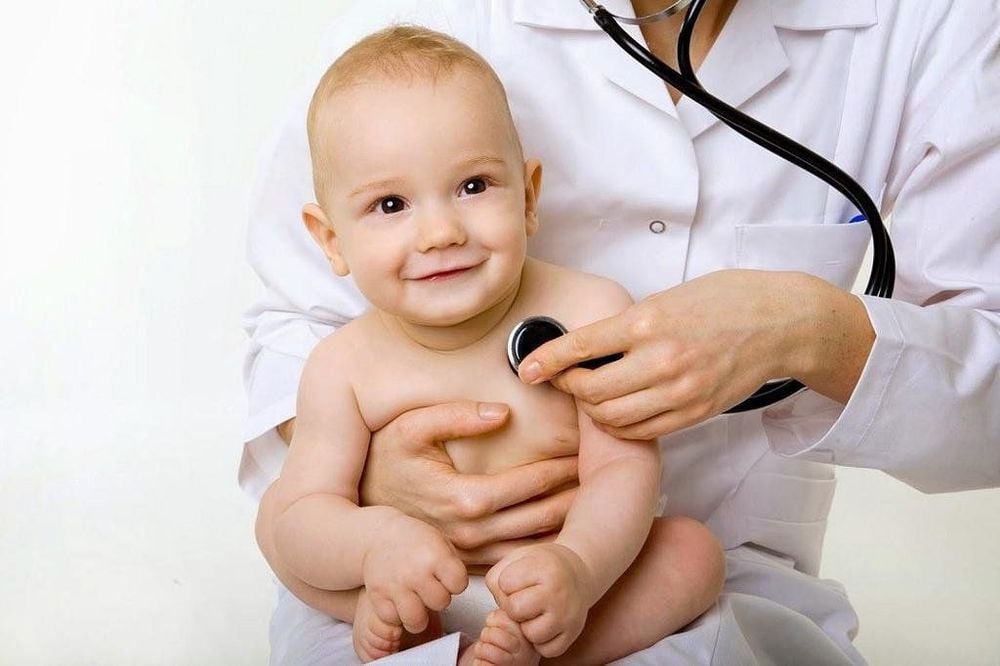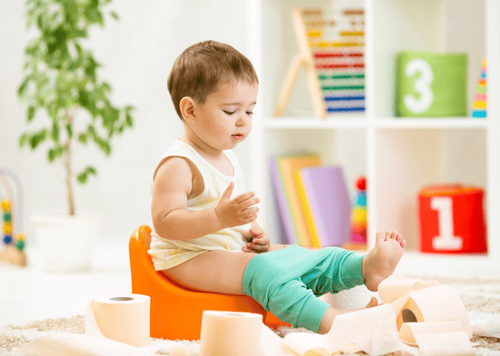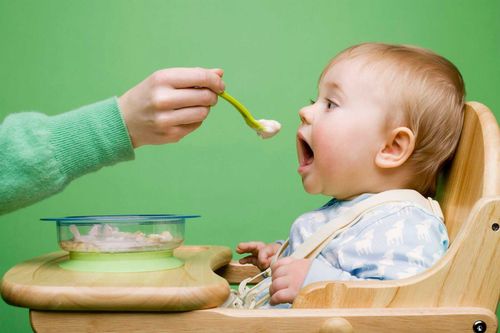This is an automatically translated article.
Observe how your child develops and changes over time, to see if your child is meeting key developmental milestones in playing, learning, speaking, behaving and acting. This is very interesting and very important work. If you notice that your child is not meeting important developmental milestones, you need to talk to your doctor about this.1. What is a development assessment?
Children develop at different rates: some speak early, others walk before their peers can crawl. However, a child's slow development in a certain skill can also be a sign of a problem in the child.A developmental assessment of toddlers and children in general is a structured assessment of a child's physical, language, intellectual, social, and emotional development. A developmental evaluator can conduct the assessment or this can be done by a team of specialists which may include:
Pediatrician. Language specialist Audiologist Therapist Child psychologist Child psychiatrist Among others. The specialist or team of experts will tailor your child's assessment to the child's age and any suspected or delayed issues.
In general, take the time to answer many detailed questions about your child's development, physical movement, behavior, play, and interactions with family members and the rest of the world. gender.
The child will undergo a series of tests that may include physical exams, hearing and vision tests, observations as the child plays, and standardized tests to determine the child's strengths and weaknesses.
If your child's teacher or doctor has offered to evaluate your child's development, you may feel anxious, scared, or even guilty. Because no parent likes to hear that their child may have a developmental problem.
Your concern is normal, but remember that an assessment is simply an assessment of your child's development. While the evaluation can lead to several diagnoses, it is by no means a diagnostic method, nor is it an indication that something is serious.
In many cases, the evaluation will show that the child is completely normal and does not require treatment. Even if the doctor or teacher suspects a problem, they can offer suggestions for you to evaluate your baby at home. Try to stay calm and remember that the ultimate goal of an assessment is to help your child be healthy as he or she grows up.

Đánh giá sự phát triển của trẻ mới biết đi nói chung và trẻ em nói chung là một đánh giá có cấu trúc về sự phát triển thể chất, ngôn ngữ, trí tuệ, xã hội và cảm xúc của trẻ
2. When is a toddler's development assessed?
The American Academy of Pediatrics recommends that all children have periodic developmental evaluations at their 9, 18, and 24 or 30-month-old visits, even if there are no problems during the procedure. develope.In addition, the doctor will monitor the child's development at each physical examination of the child. If your doctor notices a skill that your child seems to be significantly behind on compared to his or her peers, he or she may refer you to a developmental specialist for a more accurate assessment.
As a parent, you can also proactively request an assessment of your child's development. Because more than anyone else, you are the one who knows your child best and may be the first to notice a child's developmental delay. While doctors only spend a few minutes with your child during each visit, it's easy for them to miss delicate issues.
So if you are concerned about a particular problem in your child's development: for example your child's speech or ability to pick up objects and the doctor doesn't mention anything regarding them, raise the issue and ask for a referral to a specialist.
If the child is in a preschool or daycare center staffed by staff trained in early childhood development, a teacher or caregiver may be able to spot a problem in the child.

Nếu bạn lo lắng về một vấn đề cụ thể nào đó trong sự phát triển của con bạn hãy đề cập vấn đề với bác sĩ chuyên khoa
3. How best to assess toddler development?
Every assessment is different because every child's development is different and they live in different families. According to Zero to Three, a non-profit organization dedicated to the physical and mental health of young children and a leader in establishing professional standards for the evaluation of children, The best assessment should have the following elements:Parents and professionals should work together: because parents are an expert on their child's behavior, and you should play an important role in the process. child development assessment. The information you provide and your opinions are important in determining how your child is really doing. The evaluation should be done by a team: which may include a pediatrician, audiologist, child psychologist and child psychiatrist, among others. This will give the assessment results a big picture of your child's skills. At the same time, team members must have a solid understanding of child development. Your child should be observed in a number of different environments with different people: A child's behavior is complex. So to get the full picture of how your child plays, learns, moves and interacts, he or she needs to be assessed in different surroundings. For example, the way he treats you might be different from how he was at daycare or with his siblings. A good review team will look at all of these. The evaluation process should identify your child's strengths and weaknesses. Child development is complex and a good assessment should consider your child's ability to function in several areas, not just the one or two areas where he or she seems to be struggling. Your child should not be forced to separate from you during the test. Toddlers may not function at their best if they are anxious or scared. Separating a child from their parents can make them nervous, and they may even panic when they have to be around strangers without their parents. This will adversely affect the outcome of the assessment. A review should feel like help. A formal assessment of your child's development is often the first step in determining if your child needs early intervention or treatment. But when testing is done well, many parents say the assessment itself is very helpful. During the assessment you will feel like your knowledge about your child is increasing and you are getting answers to many of your questions about child development and new ideas about your child's development. How to interact with your child.
You may even feel relief after the assessment is done. Facing an underlying developmental problem can be upsetting, but you need to know that the help available can be a huge step forward for your child's development.

Sự phát triển của trẻ rất phức tạp và một đánh giá tốt cần xem xét khả năng hoạt động của con bạn trong một số lĩnh vực, không phải chỉ một hoặc hai lĩnh vực mà trẻ có vẻ đang gặp khó khăn
4. What should you do when assessing your toddler's development?
Be prepared for the child's developmental assessment and stay with the child throughout the assessment. These are the two most important things you can do to ensure optimal test results.Here are some specific suggestions on what you can do during the evaluation:
Both parents should attend any screening or screening, if possible. You may have different information or ideas to contribute, and you can compare notes later to make sure you understand everything that went wrong. Make sure your child is healthy and comfortable during the test. For example, a child who is scared or has a cold or an ear infection, will not perform to the best of his or her abilities. Ask for a written report to be sent to you and your child's doctor at the end of the evaluation. And ask questions about anything you don't understand, whether it's part of a test or jargon in a report after you get it. While you wait for the results of the evaluation, consider enrolling your child in an intervention program. Prior intervention is better when treating developmental conditions such as autism, speech and language disorders, or learning disabilities. If the assessment indicates a developmental delay in your child, you need to talk to the doctor about your child's condition and the possible treatment options for your child. Treatment can be time-consuming and emotionally draining, so be prepared. Have your child reevaluate periodically. Children grow and develop very quickly at different rates, so it is important to reassess them regularly. Your child may grow faster after being assessed as retarded or develop new ones. Therefore you need to continue monitoring to catch any changes in your child. It is important to assess the development of toddlers in particular and of all children in general. This helps parents determine how fast their child is developing and if the child has a developmental delay in any way. If a child is found to have a developmental delay, doctors can offer the earliest interventions or treatment.

Đánh giá sự phát triển của trẻ mới biết đi nói riêng và của tất cả trẻ em nói chung là việc làm quan trọng
Parents should supplement their children with supportive products containing lysine, essential micro-minerals and vitamins such as zinc, chromium, selenium, and B vitamins to help fully meet their child's nutritional needs. At the same time, these essential vitamins also support digestion, enhance nutrient absorption, help improve anorexia, and help children eat well.
Parents can learn more:
Signs of zinc deficiency in children
Micronutrient deficiency and failure to gain weight in children
Please regularly visit Vinmec.com website and update useful information to take care of your child. Take care of the baby and the whole family.
References: babycenter.com, zerotothree.org, childpsychologist.com.au, cdc.gov













